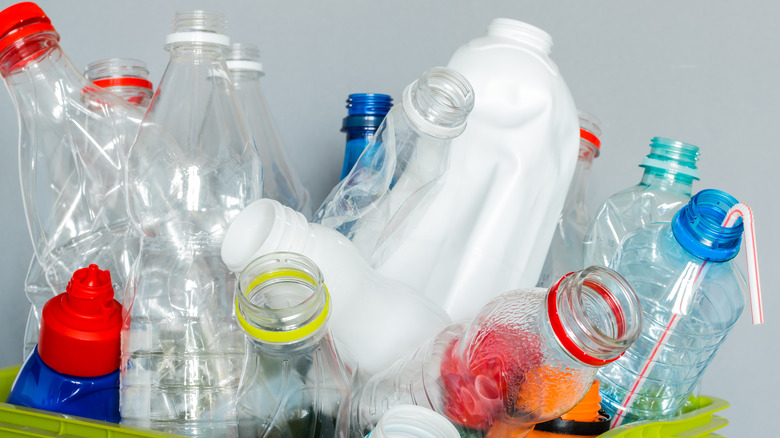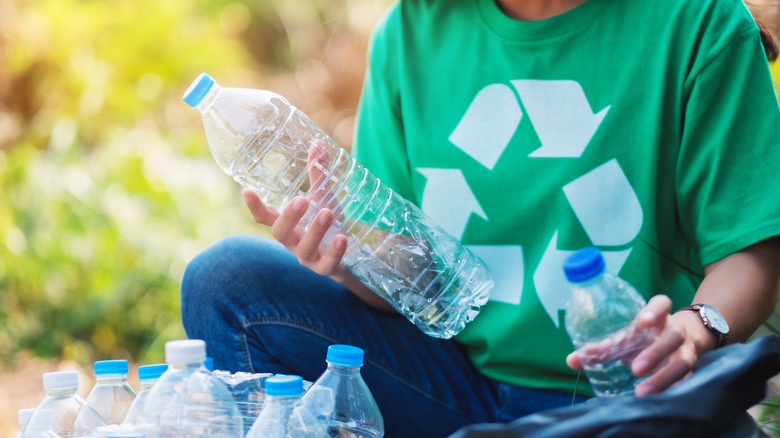Is Boxed Water Really Any Better Than Plastic For The Environment?
Boxed water has been viewed as a worthy alternative to plastic because of its apparently more environmentally friendly material. But because of the way the waste and recycling processes work the material used for boxed water yields similar results in waste facilities. Regardless it's important to note neither is meant to replace refillable water bottles and flasks.
An investigation done via Fast Company shows that the main issue lies with identifying the cartons at a waste facility as recyclable material on the waste conveyor belt. Despite being a slightly better material for degradability and reuse than plastic there's not yet a mass adoption of ways to identify these cartons in the waste workflow en masse which effectively makes it just more unrecyclable waste with current assets. Also, about 25 percent of the material isn't biodegradable in most carton water, according to the Center for Accountability in Science, and composting is not recommended.
Plastic has remained an issue because of the material itself being dead weight in our current recycling process. Most plastic isn't biodegradable in widely adopted manufacturing while carton-based containers at least partially are so any waste thrown into nature will stay there for an untold amount of time and disturb the ecosystem. The paper part falls apart but the plastic in both products doesn't degrade fast enough. Updating and investing in the recycling process could be the solution environmentalists are looking for, however.
Investing in the recycling process could yield better results
One proposed solution in the Fast Company article is sorting robots made specifically to identify reusable cartons being included in the waste management workflow. This way all material would be recycled and reduce net waste beyond the existing benefits of carton water like degradability compared to plastic bottles. This process would also need to account for the plastic and other material present in the cartons and separate them for processing.
This goes to show that cartons are generally better but would require an overhaul of existing waste processing to properly recycle. To consumers, however, the sheer expense and current negligible difference between cartons and bottled water may have them sticking to reusables and plastic for the time being. While some innovations have been made in plastic bottle biodegradation the lack of wide adoption makes reusable bottles the cleanest option for the environment until the goal of fully compostable material is met. That isn't to say that wholly plastic material isn't recyclable, it just isn't seen as profitable according to a report via The Alliance to End Plastic Waste. Profitability being a factor is a grim reminder of the priorities placed on even the most basic changes that can be made for a healthier environmental impact.
So the bottom line? Carton water is barely better than plastic by way of its partial degradability but recycling could be overhauled in spite of profitability to effectively process both materials. Regardless reusable containers are the best method for the environmentally conscious.

